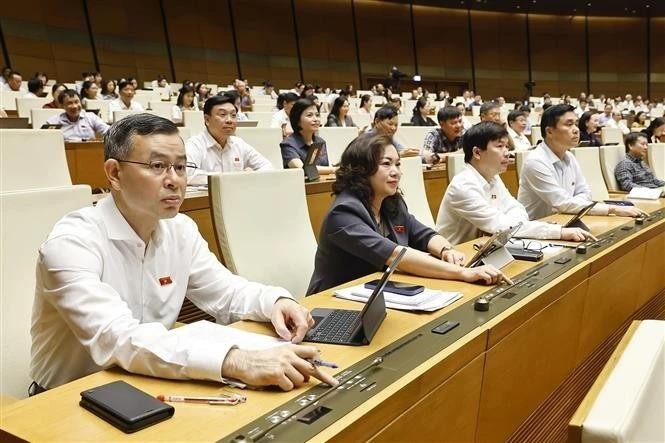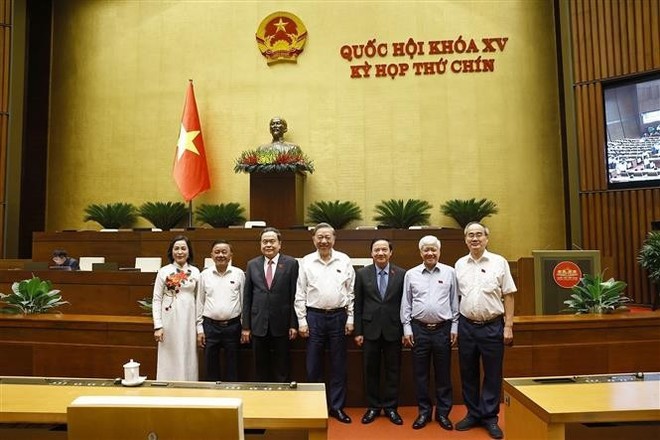
The 15th National Assembly (NA) on June 12 passed a Resolution on the reorganization of provincial-level administrative units in 2025, under which Vietnam now has 34 provincial-level administrative units, including 28 provinces and six centrally-run cities.
At the legislature’s ongoing 9th session, 461 out of 465 deputies present at the sitting, equivalent to 96.44 percent of the total number of legislators, voted in favor of the Resolution.
The Resolution requests competent authorities to urgently carry out necessary preparations to ensure that local administrations formed after the rearrangement officially begin operations from July 1, 2025.
The NA urged the Government, provincial and municipal People’s Councils and People’s Committees, along with relevant agencies and organizations, to implement this Resolution. This includes rearranging and streamlining the organizational structure of local agencies and organizations; providing support and promptly addressing the challenges and concerns of officials, civil servants, public employees, and workers affected by this work; ensuring social welfare, and protecting the legitimate rights and interests of citizens and businesses, and the requirements of socio-economic development, national defense, and security in the respective localities.

The Government is responsible for accurately determining the natural area and boundary scope on administrative maps and in the field.
It is expected that on June 30, all provinces will simultaneously announce their new administrative boundaries at the provincial and commune levels, along with the newly established leadership apparatuses of both the Party and local administrations.
Following the provincial emergence, the reorganization of the units at the commune level, and the elimination of the district level, the local administration apparatus will operate under a two-tier model. This restructuring is projected to reduce the workforce by approximately 250,000 people, including 130,000 officials, civil servants, and public employees, as well as 120,000 part-time workers at the commune level. The reform is expected to save more than VND190 trillion (US$7.3 billion) in the 2026–2030 period.
























